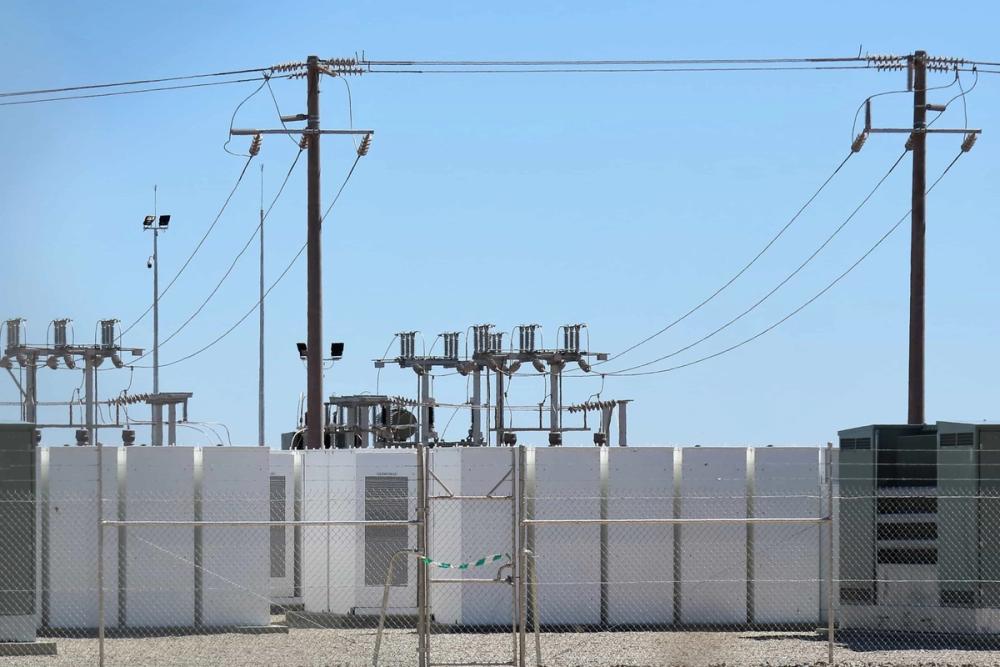Grid Battery Storage: Why Do You Need It?

Electricity is a vital resource in the modern world, and the demand for reliable, clean, and sustainable energy is growing at an unprecedented rate.
As we transition towards a future that depends more on renewable energy sources like solar and wind, the need for advanced energy solutions becomes evident.
Grid battery storage, also known as grid energy storage, is emerging as a crucial technology to meet these evolving energy demands.
In this article, we will explore the significance of grid battery storage solutions, why it is a vital component of the energy landscape and how the team at Balance Power can help you.
Balancing Supply and Demand
One of the primary reasons grid battery storage is essential is its ability to balance supply and demand. Electricity consumption can change constantly throughout the day, with peak demand often occurring when renewable energy generation is low.
Grid storage systems store excess energy during periods of low demand and release it during peak hours, ensuring a stable and reliable power supply.
Integration of Renewable Energy
The rapid growth of renewable energy sources, such as solar and wind power, poses a challenge to people all over the world due to the simple fact that most can not function 24 hours every day due to things like sunsets and a lack of wind power in an area.
Grid battery storage acts as a buffer, storing the extra electricity generated when conditions are favourable and delivering it when the energy source is not producing.
This enables a seamless integration of renewables into the grid and reduces the need for backup fossil-fuel power plants.
Resilience and Reliability
Grid battery storage enhances the resilience and reliability of the electricity grid. It provides backup power during outages and emergencies, ensuring that facilities like hospitals, emergency services, and data centres can continue to operate.
Additionally, it minimises disruptions caused by equipment failures or extreme weather events.
Reducing Peak Demand Costs
Peak demand periods can strain the grid and lead to higher electricity costs. Grid battery storage can be strategically deployed to reduce peak demand and relieve stress on the grid, ultimately lowering electricity bills for consumers and avoiding costly infrastructure upgrades.
Allowing For Grid Expansion
Grid battery storage can defer the need for expensive grid expansion projects. By strategically placing energy storage systems in areas with high energy demand, utilities can optimise grid performance, reduce transmission and distribution losses, and improve the overall efficiency of the electricity network.
Supporting Renewable Energy Growth
As the world transitions to a low-carbon future, the growth of renewable energy sources is essential.
Grid battery storage supports this growth by providing a reliable means of storing and utilising renewable energy. This, in turn, reduces greenhouse gas emissions and mitigates climate change.
Developing Microgrids
Grid battery storage is a key component in the development of microgrids, which are localised energy systems that can operate independently from the main grid.
Microgrids enhance energy resilience, especially in remote or underserved areas, by providing reliable power during outages or times when the main grid is unavailable.
Demand Response Programs
Demand response programs allow electricity users to reduce their consumption during peak periods in exchange for incentives.
Grid battery storage can facilitate these programs by temporarily supplying power during peak demand, balancing supply and demand, and ultimately lowering electricity costs.
Balance Power's Expertise
At Balance Power, we understand the critical role that grid battery storage plays in today's energy landscape. They are dedicated to harnessing this technology to provide sustainable, reliable, and efficient energy solutions.
Our expertise in grid battery storage systems allows us to create customised solutions for each of our clients, optimising electrical energy management and ensuring grid stability.
If you are a business that has high levels of energy production and are in need of support to bring these levels down to reduce your carbon footprint, please do not hesitate to give our experts a call and we will help in any way that we can.
Our private wire networks can be utilised by plenty of large companies in the UK to reduce their reliance on the national grid. These networks are also able to reduce your energy costs overall by using privately owned land for local electricity grids.
If you are a major business in the UK and wish to make your business practices more sustainable and improve your ESG rating, using private wire networks can provide benefits in each of these fields. Be sure to contact our team if you are interested in hearing more.
Conclusion
As we strive for a more sustainable future, grid battery storage emerges as a linchpin technology, supporting the integration of renewable energy, enhancing grid stability, reducing costs, and providing backup power during emergencies.
With the current progress being made, we can expect to see continued advancements in grid battery storage technology, unlocking new possibilities for a cleaner and more sustainable energy ecosystem.
By recognising the importance of grid battery storage, we take a significant step towards a future where clean energy is reliable, efficient, and environmentally responsible.



